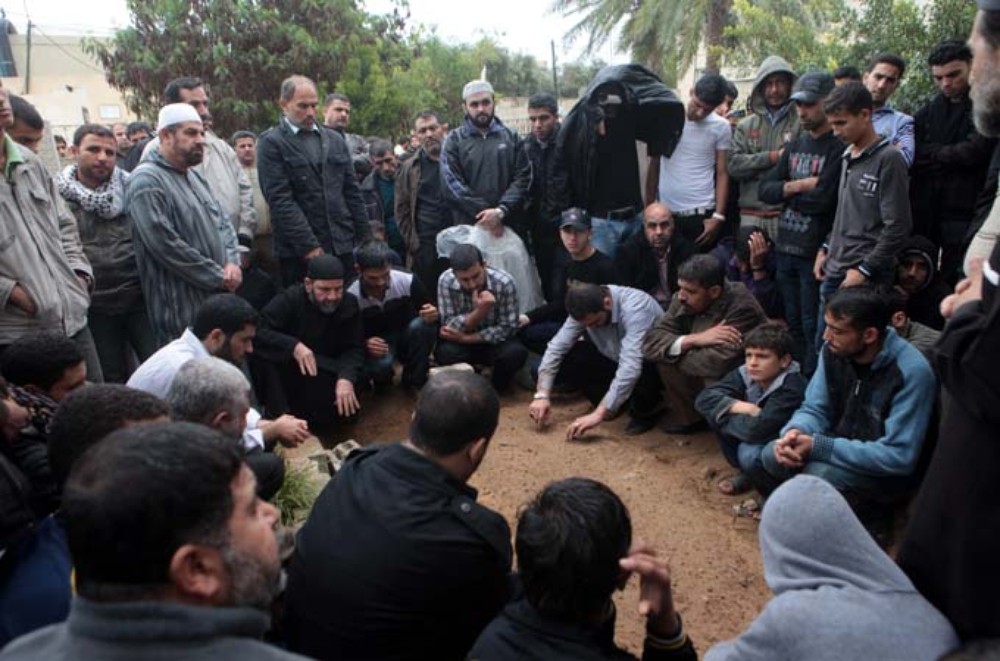Protests
spread to Yemen in 2011 in opposition to the regime of long time ruler Ali Abdullah Saleh. The protests were met with repression, and in
a context of escalating violence and external pressure, Ali Abdullah Saleh agreed to leave
power in a deal brokered by the Gulf Cooperation Council in 2011. This agreement arguably averted civil war,
and the Obama administration has held it to be a model for resolving Syria's
civil war. However, progress in Yemen
under the new government has been painfully slow and the country remains deeply
divided.

Yahya Arhab/European Pressphoto Agency
The new president Abdu Rabbu Mansour
Hadi was the Vice President under Saleh.
He was elected in part because he lacked an independent support
base. This allowed him to be an
acceptable compromise between the old guard of Saleh's regime and the powerful
tribal leaders. As a whole, he has
proven not to be a strong and decisive leader and it is rumored he fears for
his life. He has successfully removed
Saleh loyalists from key positions in the military and government, but much of
Saleh's old patronage network and tribal influence remains. His lack of resolve is understandable given
his limited popularity and desire to avoid a full blown civil war, but has
serious consequences for the country as a whole.
While
the struggle for power continues in the capital Sana, long standing problems
remain unaddressed in the rest of the country.
The Huthis, an armed group belonging to the Shiite Zaydi sect in the
northwest, continue to be a problem. A recent
raid on a smuggling boat seized advanced weapons, leading to speculations that
Iran is supporting them militarily. They
have had repeated clashes with Islah, Yemen's main Sunni Islamist party, which
receives support from Saudi Arabia. Some
worry that Yemen could devolve into a proxy battleground between Iranian backed
Shiites and Saudi backed Sunnis.
The
scenario in southern Yemen is even grimmer.
The south was rejoined with the north in the 1990s, only to be neglected
by Saleh's government. An independence
movement is gaining momentum, which Hadi has struggled to placate effectively. The Yemeni franchise of Al Qaeda has a widespread
presence and considerable influence in the south, even controlling entire towns
for long periods. They have obtained
support by providing services that the government has long failed to. They continue a bloody campaign of
assassinations against government figures.
Altogether,
the mediated transition in Yemen has not resulted in an improvement in its
prospects. Yemen remains painfully poor
and uneducated, with a high birth rate. The
economy is in ruins and the government continues to run a deficit. The state's capacity is severely limited by a
lack of resources and internal divisions.
The transition agreement calls for a council of national dialogue in
order to achieve reconciliation between all the major actors. While this could potentially bring the disenfranchised
into politics, key groups, such as the independence movement, are refusing to
participate. How this tense situation will
unfold remains to be seen.
Works Cited
Kasinof, Laura. "For Yemen's New President, a Battle for Control and a Tug of War With the Past." The New York Times. The New York Times, 14 June 2012. Web. 28 Feb. 2013.
Washington., C. J. Chivers And Robert F. Worth; C. J. Chivers Reported From The United States And Robert F. Worth From. "Seizure of Antiaircraft Missiles in Yemen Raises Fears That Iran Is Arming Rebels There." The New York Times. The New York Times, 09 Feb. 2013. Web. 28 Feb. 2013.
Worth, Robert F. "Yemen, Hailed as Model, Struggles for Stability." The New York Times. The New York Times, 19 Feb. 2013. Web. 28 Feb. 2013.
"Yemen Overview." New York Times. N.p., 28 Feb. 2013. Web. 28 Feb. 2013.






